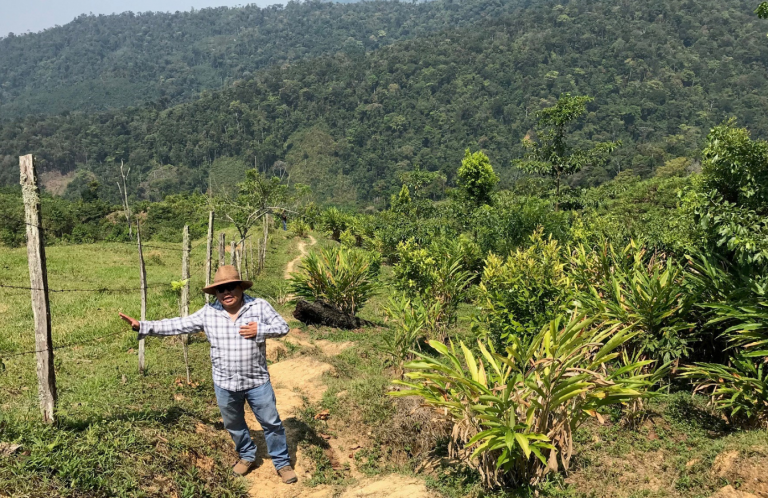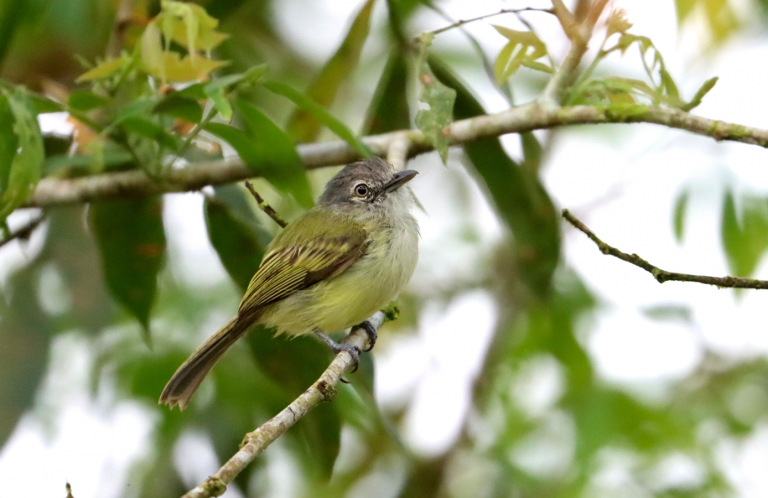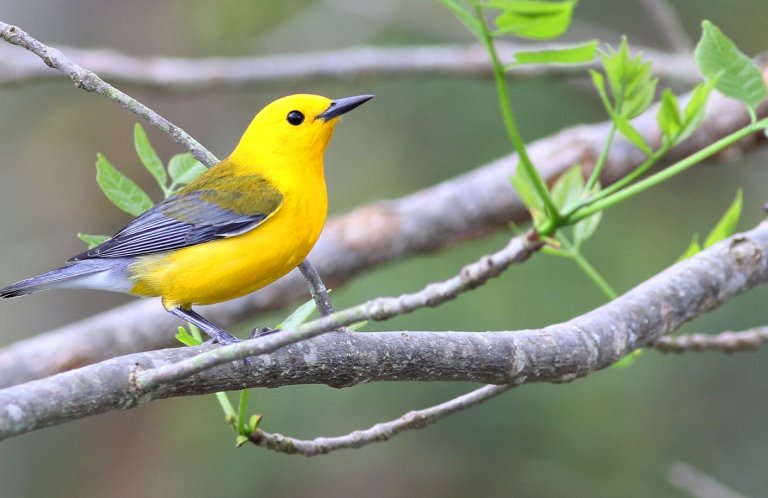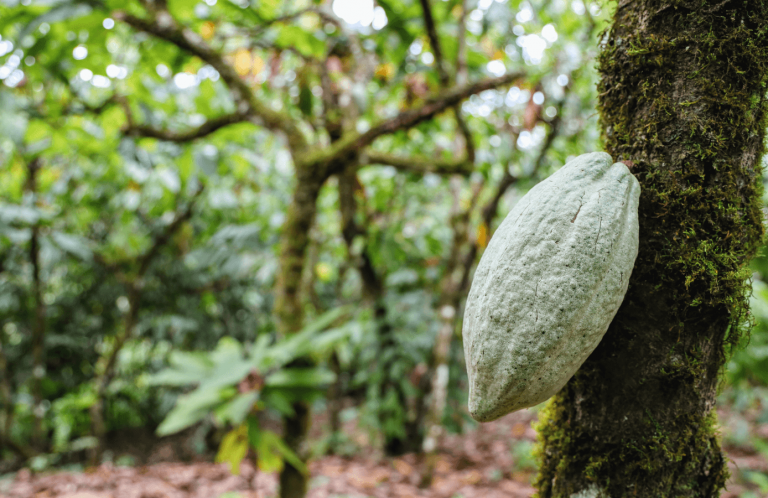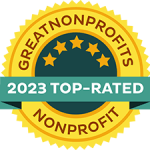Introducing BirdsPlus: ABC's Newest Strategies to Bring Back Migratory Birds

Migratory birds in the Americas are in crisis, with roughly 2.5 billion migratory birds disappearing from the United States and Canada in the past 50 years. Much of this precipitous decline is driven by habitat loss, including on many species' nonbreeding grounds in Latin America and the Caribbean. That's why ABC is launching BirdsPlus, an innovative program to rapidly expand bird habitat conservation in Latin America and the Caribbean while also investing in sustainable development in the most important places for migratory bird species.
The program connects people on working lands to financing and markets that can help unlock large funding streams, enabling them to scale up habitat conservation and restoration for migratory birds. The program is also developing an affordable and user-friendly “Bird Index” tool for the private sector, investors, governments, and nonprofits to measure biodiversity benefits of management practices, using birds as indicators.
“When we look at what's driving habitat loss on birds' wintering grounds in Latin America and the Caribbean, it's often conversion to agriculture and livestock grazing,” said Marci Eggers, Director of Migratory Bird Habitats in Latin America and the Caribbean. “BirdsPlus will increase habitat conservation through investments and will be a way to invest in sustainable agriculture in Latin America and the Caribbean with positive impacts for birds, nature, and people.”
To achieve results for migratory birds, BirdsPlus has a simple three-pronged approach:
Best Management Practices to Support Birds
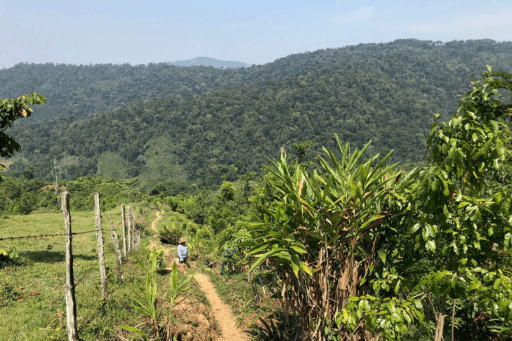
First, BirdsPlus will incentivize and catalyze best management practices among farmers and ranchers. Participating farms and ranches will implement a set of science-backed habitat standards that can help ensure their lands can support healthy bird populations during the North American winter.
While forest clearing has been a big driver of habitat loss for birds like the Wood Thrush, working lands can be managed to benefit both birds and people. If a diversity of vegetation is allowed to flourish on farms and ranches, it can contribute to a habitat mosaic that provides refuge to a wide range of resident and migratory bird species and other wildlife. Our staff recently helped to develop the standards used for the new Bird Friendly Cocoa certification, and we are also promoting sustainability standards for other crops such as rubber and cardamom, as well as cattle grazing.
BirdsPlus Fund to Scale Up Conservation — and Generate Returns
These best practices will be most impactful if they are adopted on a large scale, which will require substantial financial resources. To address that need, BirdsPlus efforts on the ground will be supported by the BirdsPlus Fund. Through the Fund, ABC will accelerate and scale up the adoption of bird-friendly agricultural practices that would generate economic returns for local communities and investors.
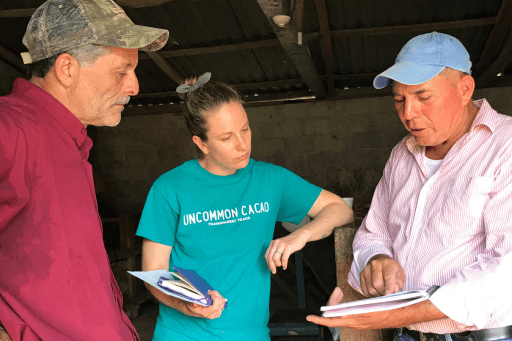
Over the last four years, we have been piloting conservation projects to demonstrate that the same projects that are good for birds can generate profits. For instance, in Honduras, we are working with a local, community-run company that works with cacao farmers to improve their farming practices and sell their cacao to buyers in the U.S. to provide them with a profit.
“We are already seeing results with our projects, in which to date the company has sold seven tons of cacao from nearly 300 acres (120 hectares) of cacao farms that protect more than 1,000 acres (400 hectares) of forest,” said Andrés Anchondo, Associate Director, Impact Investing in Latin America. “With investments from the BirdsPlus Fund, the company called Cacao Miskito is on track to sell another 15 tons of cacao in 2023. This will benefit migratory birds and other threatened wildlife, more than 100 local families, and chocolate lovers alike.”
BirdsPlus Index for Measuring Biodiversity
One key aspect of developing the conditions to foster investments in the BirdsPlus Fund is to be able to clearly measure the benefits to birds and biodiversity that such investments have. These results will be tracked by ABC's new Bird Index, a biodiversity assessment tool that uses birds as an overall indicator of ecosystem health.
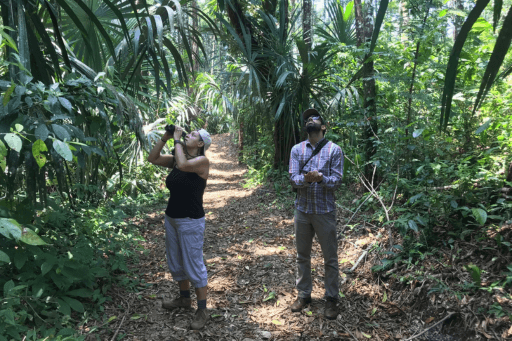
Birds can serve as a convenient, efficient, and cost-effective measure of overall biodiversity in a landscape since they are relatively easy to survey and return more quickly to landscapes under restoration. For instance, more insectivores means there are more insects; more frugivores means there are more native fruiting trees.
With this information, we will be able to track habitat health over time and continuously refine our best management practices. And, our hope is that more investors will be attracted to BirdsPlus agriculture and ranching projects because they will be able to track biodiversity impacts.
Taken together, the three strategies of BirdsPlus should make a real difference for beloved migratory birds like the Cerulean Warbler, Northern Parula, and Ruby-throated Hummingbird, as well as help benefit local communities and biodiversity more broadly. Given the dramatic losses of migratory bird populations, we have to act boldly to achieve conservation at the scale and urgency needed to restore migratory bird habitat. BirdsPlus provides a unique opportunity for win-win collaboration for nature and people. Stay tuned for more exciting news about this program!
American Bird Conservancy is deeply grateful to the Jeniam Foundation for its generous support of this program.
###
American Bird Conservancy is a nonprofit organization dedicated to conserving wild birds and their habitats throughout the Americas. With an emphasis on achieving results and working in partnership, we take on the greatest problems facing birds today, innovating and building on rapid advancements in science to halt extinctions, protect habitats, eliminate threats, and build capacity for bird conservation. Find us on abcbirds.org, Facebook, Instagram, and Twitter (@ABCbirds).
Media Contact
Jordan Rutter
Director of Communications
media@abcbirds.org





































